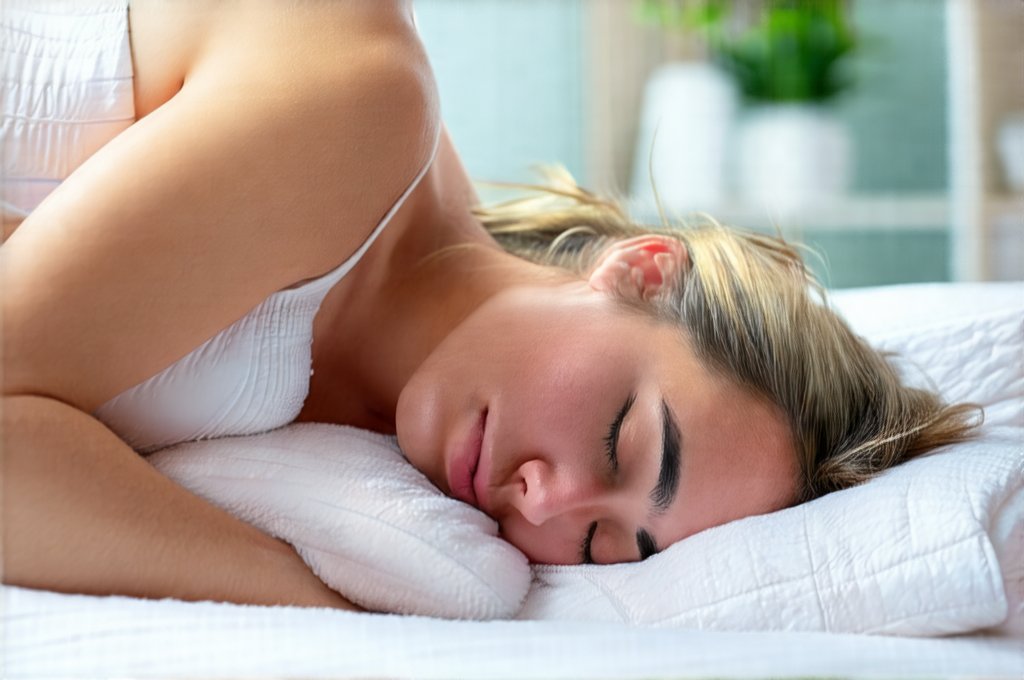Sleep is often one of the first things sacrificed when chronic pain takes hold. For those living with interstitial cystitis (IC), a condition causing bladder pressure, abdominal discomfort, and frequent urination, this struggle is particularly acute. The relentless symptoms can create a vicious cycle: pain disrupts sleep, and lack of sleep exacerbates pain sensitivity, leading to even more disrupted sleep. This isn’t merely about feeling tired; it’s about the profound impact chronic sleep deprivation has on mental health, immune function, and overall quality of life. Finding restful sleep with IC requires a multifaceted approach that addresses both the physical and emotional challenges inherent in managing this complex condition.
The challenge is compounded by the fact that many conventional sleep aids aren’t ideal for individuals with IC. Some medications can worsen urinary frequency or interact negatively with other treatments, leaving people feeling trapped between pain and side effects. Moreover, the anxiety surrounding potential flare-ups or nighttime bathroom trips further contributes to insomnia. This article aims to provide a comprehensive guide to improving sleep quality specifically for those navigating life with interstitial cystitis – offering practical strategies, lifestyle adjustments, and supportive techniques that go beyond simply “getting more sleep” and focus on restorative rest.
Understanding the IC & Sleep Connection
Interstitial Cystitis isn’t just about a painful bladder; it’s often linked to a constellation of related symptoms impacting sleep. Pelvic floor dysfunction is common, contributing to muscle tension and discomfort which can worsen at night when lying down. Nerve sensitivity is also heightened in individuals with IC, meaning even mild pressure or movement can be perceived as intensely painful. Beyond the physical aspects, the emotional toll – anxiety, depression, frustration – significantly impacts sleep quality. The constant anticipation of pain and urgency can lead to hypervigilance, making it difficult to relax and fall asleep.
The bidirectional relationship between IC symptoms and sleep is crucial to understand. Sleep deprivation weakens the body’s natural pain modulation systems, meaning even existing levels of discomfort feel more intense. Conversely, improved sleep enhances pain tolerance and reduces inflammation, potentially mitigating IC symptoms. This creates a positive feedback loop: better sleep leads to less pain, which in turn makes it easier to sleep. Addressing both aspects simultaneously is essential for long-term management.
Furthermore, the impact of dietary triggers on both IC flares and sleep should not be underestimated. Foods that irritate the bladder can also disrupt sleep patterns, leading to a cycle of discomfort and wakefulness. Identifying and avoiding personal trigger foods – often through an elimination diet guided by a healthcare professional – is a vital step towards improving both symptom management and sleep quality. If you struggle to understand your symptoms, it may be helpful to distinguish UTI from IC.
Lifestyle Adaptations for Restful Nights
Creating a conducive sleep environment and adopting consistent routines are foundational steps toward better sleep with IC. This includes establishing a regular sleep-wake cycle, even on weekends, to regulate the body’s natural circadian rhythm. A dark, quiet, cool bedroom is ideal – consider using blackout curtains, earplugs, or a white noise machine to minimize disruptions. Avoiding caffeine and alcohol before bed is crucial, as they can both exacerbate bladder symptoms and interfere with sleep quality.
Beyond the bedroom setup, incorporating mindful movement and relaxation techniques into your daily routine can significantly improve sleep. Gentle exercises like yoga or tai chi can help release tension in the pelvic floor muscles and reduce overall stress levels. Mindfulness meditation, deep breathing exercises, and progressive muscle relaxation are powerful tools for calming the mind and body before bedtime. It’s also important to establish a relaxing pre-sleep ritual – perhaps taking a warm bath (avoiding harsh soaps), reading a book (not on an electronic device), or listening to calming music. Remember, consistency is key; building these habits into your daily life will yield the greatest benefits over time. If you are planning travel, consider how to navigate travel with IC to minimize disruptions.
Optimizing Bathroom Breaks & Fluid Intake
Managing nighttime bathroom trips is a common concern for those with IC. While restricting fluids before bed might seem logical, it can actually concentrate urine and worsen bladder irritation. Instead, focus on strategic fluid intake throughout the day – spreading out your consumption rather than drinking large amounts at once. Avoid diuretics like caffeine and alcohol in the evening.
- Establish a voiding schedule: Empty your bladder completely before bedtime.
- Consider timed voids: If you regularly wake up to urinate, try setting an alarm for a specific time to preemptively empty your bladder before waking naturally with urgency. This can sometimes disrupt the cycle of frequent awakenings.
- Nighttime lighting: Use dim nightlights instead of bright overhead lights when getting up at night. Bright light can suppress melatonin production and make it harder to fall back asleep.
Addressing Pelvic Floor Dysfunction
Pelvic floor dysfunction often accompanies IC, contributing to pain and discomfort that interferes with sleep. Tight or spasming pelvic floor muscles can exacerbate bladder symptoms and create a vicious cycle of tension. Working with a specialized physical therapist experienced in pelvic health is crucial for addressing this issue.
- Biofeedback: This technique helps you become aware of your pelvic floor muscle activity and learn how to control them effectively.
- Manual therapy: Gentle massage and mobilization techniques can release tension in the pelvic floor muscles.
- Specific exercises: A physical therapist will design a personalized exercise program to strengthen or relax specific pelvic floor muscles, based on your individual needs.
Managing Anxiety & Emotional Wellbeing
The chronic nature of IC often leads to anxiety, depression, and feelings of helplessness – all of which significantly impact sleep quality. Addressing these emotional challenges is just as important as managing the physical symptoms. Consider seeking support from a therapist or counselor specializing in chronic pain management. Cognitive Behavioral Therapy (CBT) can be particularly helpful for learning coping mechanisms and challenging negative thought patterns.
- Journaling: Writing down your thoughts and feelings before bed can help clear your mind and reduce anxiety.
- Mindfulness practices: Regularly practicing mindfulness meditation can cultivate a sense of calm and acceptance, even in the face of chronic pain.
- Social support: Connecting with others who understand what you’re going through – whether it’s through online forums or local support groups – can provide a valuable source of comfort and encouragement. You may also find it useful to identify IC in women specifically for additional resources. If you are experiencing pain related to prostatitis, consider how to design a bedroom setup that promotes better sleep.





















